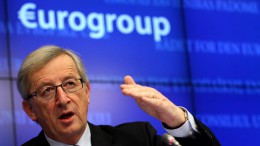Juncker’s victory breaks EU’s financial heart
MADRID | By Ana Fuentes | Despite British PM David Cameron’s intense campaign against him, Jean-Claude Juncker was chosen as European Commission new president on Friday with 26 out of 28 heads of states’ votes. Candidate of the centre right European People’s party, the largest group in the parliament, and a veteran EU deal-broker, Luxembourg’s former PM vows for increasing the power of Brussels and reducing the voice of nation states. He’ll be officially appointed on July 16 with the strong opposition of the EU’s financial centre.


